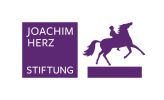Science Project Bilinguales Fach (→)

How many bacteria can you find on the surface of a touch screen?
Why and how do people get ill? In how far can antibiotics help and what has this all got to do with yoghurt?
If you have ever caught yourself asking these questions and like working in creative and social settings, then you should attend our electory “Science Project“ in years 9 and 10. The Science Project follows the approach of project-based learning, which means that you will work on longer projects, usually in group settings. You can contribute your own ideas and skills and will play a major role in your group’s success. This will also help you build up the skills you need in the Oberstufe step by step.
Among the topics we cover in year 9 are the human senses, pathogens and immune system. In both theoretical and experimental settings, we will take a closer look at how our bodies process sensory input and control reactions. You will also design, conduct and analyze your own experiments. We usually host a “Science Fair“ where you can exhibit and present your experiments and results.
The second part of year 9 bridges the gap between the external and the internal world of biology. For example, you will examine why and how people get ill, how our immune system works and how we can cure diseases. Here, you will be turned into a researcher, research a disease of your own choice, write a short paper and give a presentation about it.
In year 10, you will look at “the bigger picture“ again. The first part of year 10 focuses on current environmental issues, for example the threat by microplastic and how your choices and actions can make a difference. The second part of year 10 will give you a general introduction to evolution before you can deal with this topic in a creative manner.
These are the topics we usually cover in our Science Project, but sometimes we may change topics because of current events. In 2020, for example, students created their own research questions related to SARS-CoV-2 and wrote a short paper about it or worked on moss and lichens as bio indicators. Some students’ works can be found here.



